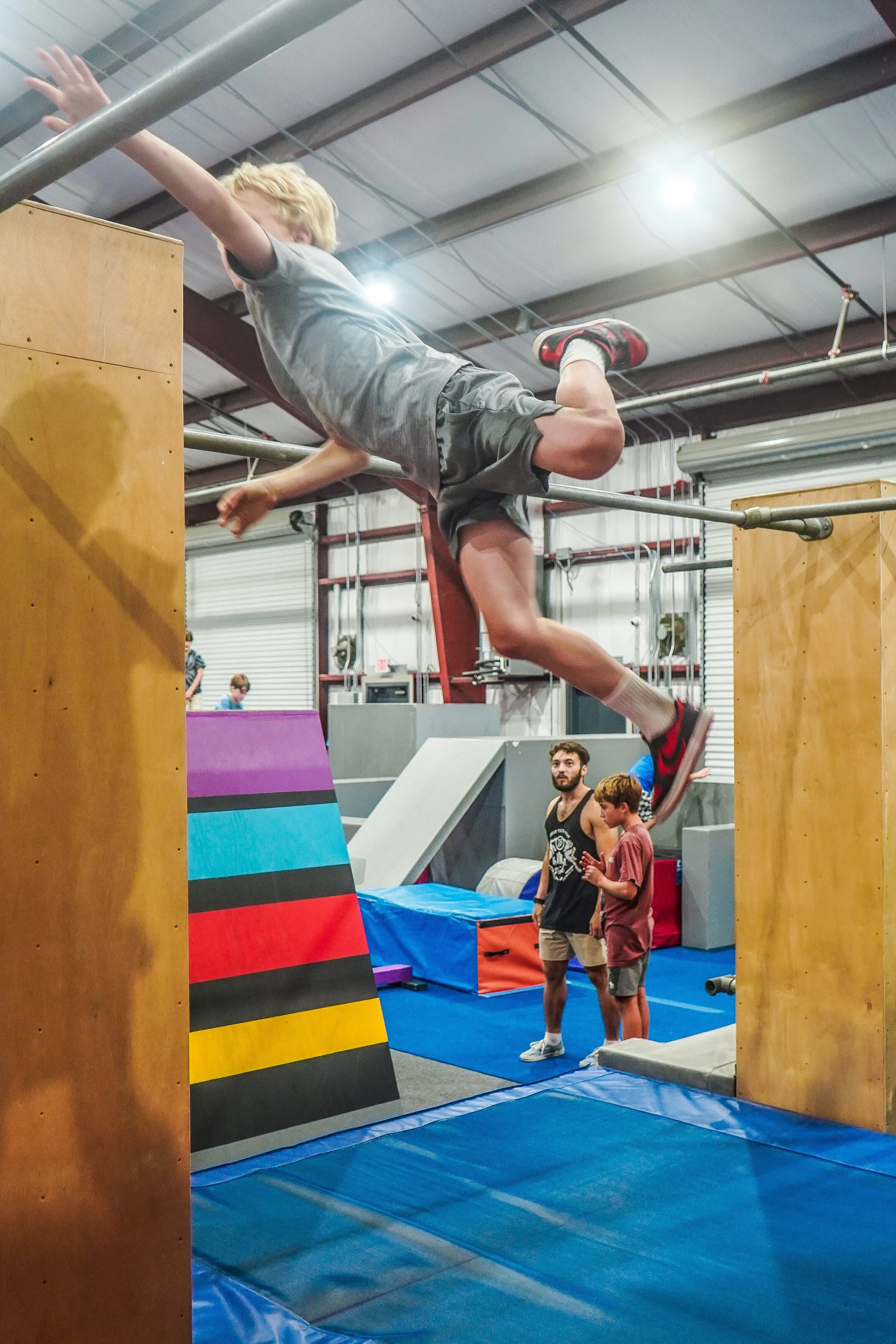Unlocking Potential: how parkour helps kids and teens discover what they’re capable of
Every child and teen has an incredible amount of untapped physical potential. But in today’s world—where screens dominate free time and structured activities often focus more on competition than exploration—many young people never get the chance to truly discover what they’re capable of.
At Urban Youth Park, we believe that giving kids the space, guidance, and encouragement to explore their movement potential isn’t just fun—it’s vital for their physical health, mental well-being, and self-confidence. And parkour? It’s one of the best ways to make that exploration happen.
🌱Why Physical Exploration Matters for Growing Minds and Bodies
Exploring physical potential is about more than just “getting exercise.” It’s about giving kids and teens opportunities to:
• Test their limits safely
• Learn new skills through trial and error
• Gain confidence in their own abilities
• Connect their minds and bodies in a way that builds coordination and awareness
Research supports this. A 2019 study in the Journal of Physical Activity and Health found that youth who regularly engage in varied, skill-based physical activities show higher motor competence, better problem-solving skills, and improved self-perception compared to those in more rigid or repetitive exercise programs (Logan et al., 2019).
When kids have the freedom to try, adapt, and succeed at physical challenges, they start to believe in themselves—and that belief transfers into other areas of life.
⸻
🧠Mental Benefits: Confidence, Resilience, and Self-Discovery
Physical exploration naturally teaches persistence and resilience. That’s because the process often involves encountering obstacles (literally), failing, and trying again until finding the inevitable success.
Growth mindset research—pioneered by psychologist Carol Dweck—shows that kids who learn to see challenges as opportunities rather than threats develop higher levels of confidence and a stronger ability to bounce back from setbacks (Dweck, 2006).
At Urban Youth Park, our coaches guide students through challenges with a focus upon this mindset. We don’t just teach movement; we teach kids how to approach any problem with curiosity and determination.
⸻
🤸Why Parkour Is the Perfect Playground for Potential
Unlike many traditional sports, in Parkour kids are encouraged to experiment, adapt, and use creativity to overcome obstacles. This makes it an ideal outlet for discovering physical potential without the pressure of rankings, points, or being “better” than someone else.
Here’s what makes parkour stand out:
• Freedom with structure: Coaches provide safe progressions, but every student moves at their own pace and style.
• Full-body engagement: Parkour uses strength, agility, balance, coordination, and flexibility—all in one session.
• Real-world application: Movements translate directly into everyday life—running, jumping, climbing, and problem-solving in real environments.
And importantly, our coaches create an environment of positive reinforcement and safe experimentation, so kids feel supported while still being challenged.
⸻
🔑The Lasting Impact
When kids learn to explore their physical abilities in a safe, encouraging environment, they gain:
• Physical literacy: The ability to confidently use their body in a variety of ways.
• Mental resilience: The confidence to try new things and persist when it gets tough.
• Self-awareness: A deeper understanding of their strengths and limits—and how to expand them.
These aren’t just athletic skills. They’re life skills.
⸻
🚀Ready to Help Your Child Discover Their Potential?
At Urban Youth Park, we’re here to guide kids and teens through an exciting journey of movement, growth, and self-discovery. Our parkour classes give them the tools to explore safely, the encouragement to keep trying, and a powerful realization: “I can do this.”
Join us for a trial class today—and watch your child’s confidence and abilities soar.
⸻
References:
• Logan, S. W., Ross, S. M., Chee, K., Stodden, D. F., & Robinson, L. E. (2019). Fundamental motor skills: A systematic review of terminology. Journal of Physical Activity and Health, 16(12), 1132–1144. https://doi.org/10.1123/jpah.2016-0627
• Dweck, C. S. (2006). Mindset: The New Psychology of Success. Random House

